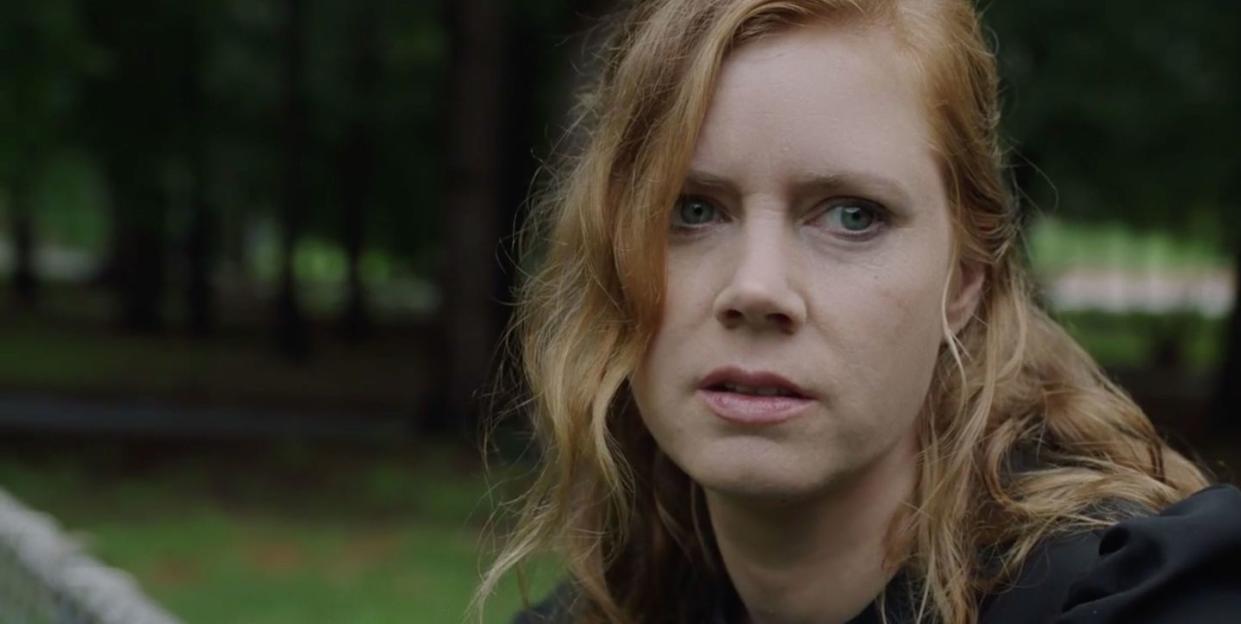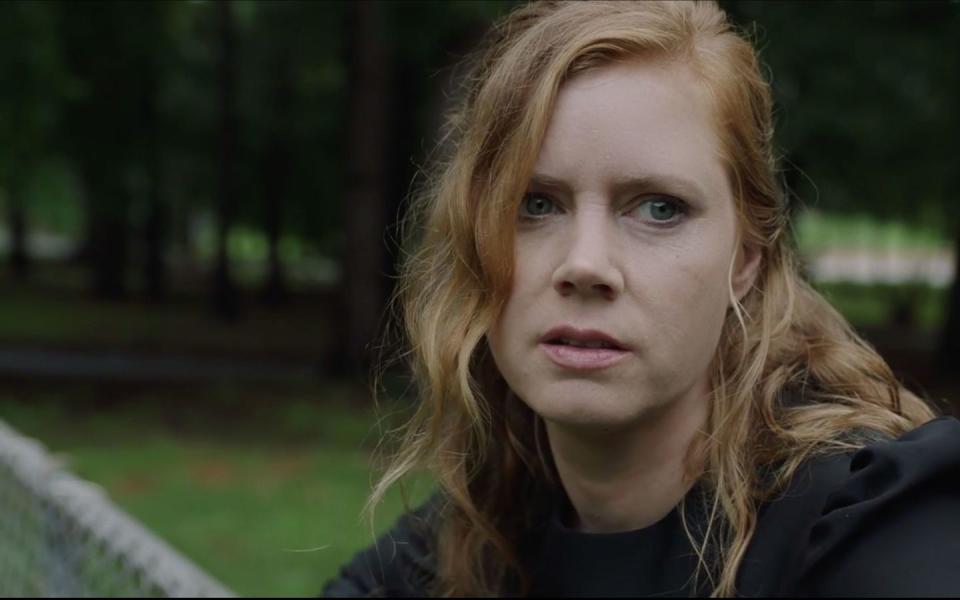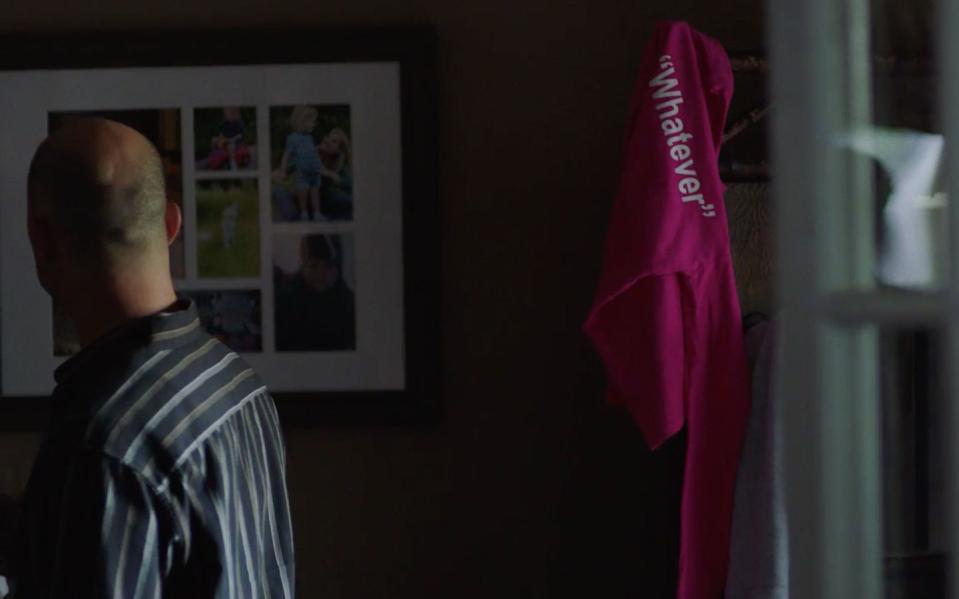Sharp Objects' Camille Preaker Is a Bad Reporter

Warning: Spoilers for Sharp Objects season 1, episode 2 "Dirt" ahead.
Like Camille's scars, Sharp Objects is a visceral wound audiences can't help but pick and exacerbate, attempting to dissect meaning behind every menacing Wind Gap interaction before they have nearly enough information. In a way, the series already feels very much like the first season of True Detectives, slow moving and unnerving but completely addicting. We're thirsting for information and the key to its many mysteries, from the identity of the killer to what the fuck is up with Amma (Eliza Scanlen)-are her personality shifts completely an act...is she the killer–much more than our central character does, at least for now.
The Washington Post recently thanked Gillian Flynn, the writer of both the novel from which the new HBO series is based and the second episode of the series, for "giving women permission to be bad." They boast over Flynn's fight against “this idea that women are innately good, innately nurturing.” I'm assuming they're talking about her character Camille Peaker's (Amy Adams) alcoholism, acerbic wit, and that time she said "let's hope we find a dead little girl" over the phone to her editor. She's abrasive, only somewhat sympathetic (mostly thanks to her batshit mother and flashbacks to her dead sister), and I have to squeeze my eyes shut every time she sticks a pin underneath her fingernails....but can we talk about how she's also bad at her job?
In episode 1, when Camille tries to argue she won't 'win a Pulitzer for Wind Gap," her editor Frank (Miguel Sandoval) tells her she won't win a Pulitzer because she's "only half good at writing." Well, it seems like she's only half good at the reporting part, too. This is not a dig at Sharp Objects. Too often Hollywood loves to pedal the "flawed genius"-who are almost exclusively male. If I told you to name a character who drinks away their liver at all hours of the day, suffers from depression, has deep-seated anger issues, yet somehow remains at the top of their field, you could probably name ten. It's refreshing as hell to see someone's flaws and poor choices actually hinder their performance... you know, like reality.
Here, every time I questioned Camille's ability to journalism in episode 2:

1. She's drinking... like the whole time.
2. The funeral. Okay, so I'm not sure if this is actually poor journalism, but it's sure as shit in poor taste to sit in the second row and take notes during a service for a child. The whole time I was wondering why she wouldn't sit further back, though I suspect it has to do with wanting to watch the reactions of those closest to the child...I'll give it to her. She does seem to be focussed in on Natalie's (the second deceased girl) brother, who has a pretty non-alibi alibi for the murders. He was "driving."
3. Leaving the funeral before anyone else. When your goal is to observe, you should make yourself as invisible as possible. Leaving the funeral while the priest is leading a prayer (again, when you're sitting in the second row) does the opposite of that. Her quick exit seemed to be sparked by the flashback of her sister's funeral and the disturbing image of her mother pulling out her own lashes. Another marker that she's too emotionally compromised by her unaddressed trauma to fully commit to this story.
4. Does not talk to the girl who says (regarding Natalie's mother): "That girl she describes was not Natalie. Believe me I should know." Her mood at the wake is apathetic at best. Throughout episode one and two, unexplained words pop up all over the screen that seem to reflect Camille's state of mind, mood, and thoughts. At this point it's safe to assume these easter-eggs are completely in her mind. During the wake, here's the word catches her eye:

5. SEARCHING THE DEAD GIRL'S ROOM. I'm sorry, in the words of Adora (Patricia Clarkson), "you can't just go into the room of a dead little girl" and rummage through things without her parents' blessing. As much as we wish it weren't true, journalists need to have some sort of code of ethics, and this is just blatantly gross. And she left her drink in there like a flighty sorority girl at a frat party.
6. Talking to a child without parental consent. In a town currently on edge over the abduction and murder of multiple children, Camille thinks it's a great idea to go up to an unaccompanied minor and ask him about it. Oh, and when he tells her about another child (James) that was with Natalie when she disappeared-taken by a "woman in white"-she asks him to BRING HER TO HIM. Stranger danger.
7. Lies to her editor. The number one no-no. She tells him she had permission to be in Natalie's room after he rightfully points out that it would be a breach of ethics otherwise. Actually, he said they'd be "screwed." Oh, well.
Sharp Objects airs Sundays at 9 P.M. EST on HBO.
You Might Also Like

